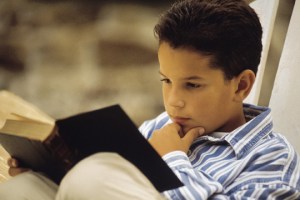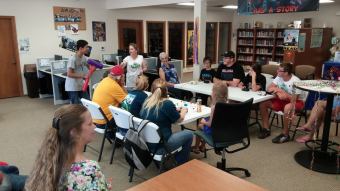I love writing for the middle-grade reader.
There’s something very appealing about this audience. They’re old enough to understand humor and even sarcasm (in fact, some eleven-year-olds I know are Kings and Queens of Sarcasm). By age nine, many children have mastered the mechanics of reading and they’re ready for challenging new vocabulary and themes that stretch their minds.

And best of all, middle-grade readers aren’t ready for all the angst, sexual issues, cussing, and violence that those Young Adult authors have to face head on when writing for teens. Right? I mean, the middle-grade genre is all about best friends and dogs and family vacations and…
STOP.
If you dig, even not too deeply, you’ll probably find an interview in which I’m quoted saying something very similar to the previous paragraph. But I now know that when I had those thoughts, I was thinking about the middle-grade books of my youth, not today’s middle-grade kids.
My local school district has an “Intermediate” building for 5th and 6th graders. Last time I was there, I was surprised that most of the library books I saw being toted around by these ten- to twelve-year-olds were YA titles. They were devouring “The Hunger Games” and going ga-ga over “The Fault in Our Stars.” Why weren’t they reading middle-grade books? Why weren’t they reading my books? Aren’t these the very students I (and other middle-grade authors) write for?
To find the answers, I think we have to look more closely at today’s nine- to twelve-year-old. Here are some interesting facts* about the MG audience. Our MG audience:
In middle childhood, children might:
- form stronger, more complex friendships and peer relationships
- feel very emotional about those friendships
- encounter higher levels of peer pressure
- notice bodily changes and have unanswered questions about their bodies
- begin to develop body image issues such as eating disorders
- feel the pressure of harder classwork and academic challenges
- begin to see themselves apart from their family unit
- experience fears such as: fear of disappointing parents or parents finding out about negative behaviors or thoughts
- experience anxiety over their social standing
- become more aware of community threats and dangers such as violence
Whoa. That’s a heavy list for kids who haven’t even hit their teens yet. But it’s reality and it’s our audience. These are the children for whom we write.
So, what does this mean? No more dogs and best friends and family vacations? Of course not. But what it does mean is that we shouldn’t shy away from the reality that is life for today’s middle grader. Sometimes parents go to prison. Aunts and uncles can be alcoholics. Preteens think about their sexuality. Gangs and violence don’t suddenly appear after age 13. Nine- to twelve-year-olds sometimes live in homes or communities that are dangerous.
It’s okay to address the tougher side of preteen life. As storytellers, we can choose the right measure of tact, honesty, and humor to soften the blows of middle grade reality.
What are your current favorite middle grade titles? I’d be willing to guess that beneath the general premise there are some serious issues which today’s middle graders understand all too well.
What do you think? Share your comments below!
*facts listed above come from:
http://www.cdc.gov/ncbddd/childdevelopment/positiveparenting/middle2.html
https://www.psychologytoday.com/blog/liking-the-child-you-love/201402/the-hiddennot-so-hidden-fears-middle-school-students
Michelle Houts is the author of four books for middle-grade readers. She shares The Mark Boney Promise with young people at school and library visits in an effort to bring more kindness to classrooms everywhere. Find Michelle at www.michellehouts.com. On Twitter and Instagram @mhoutswrites and on Facebook as Michelle Houts.







